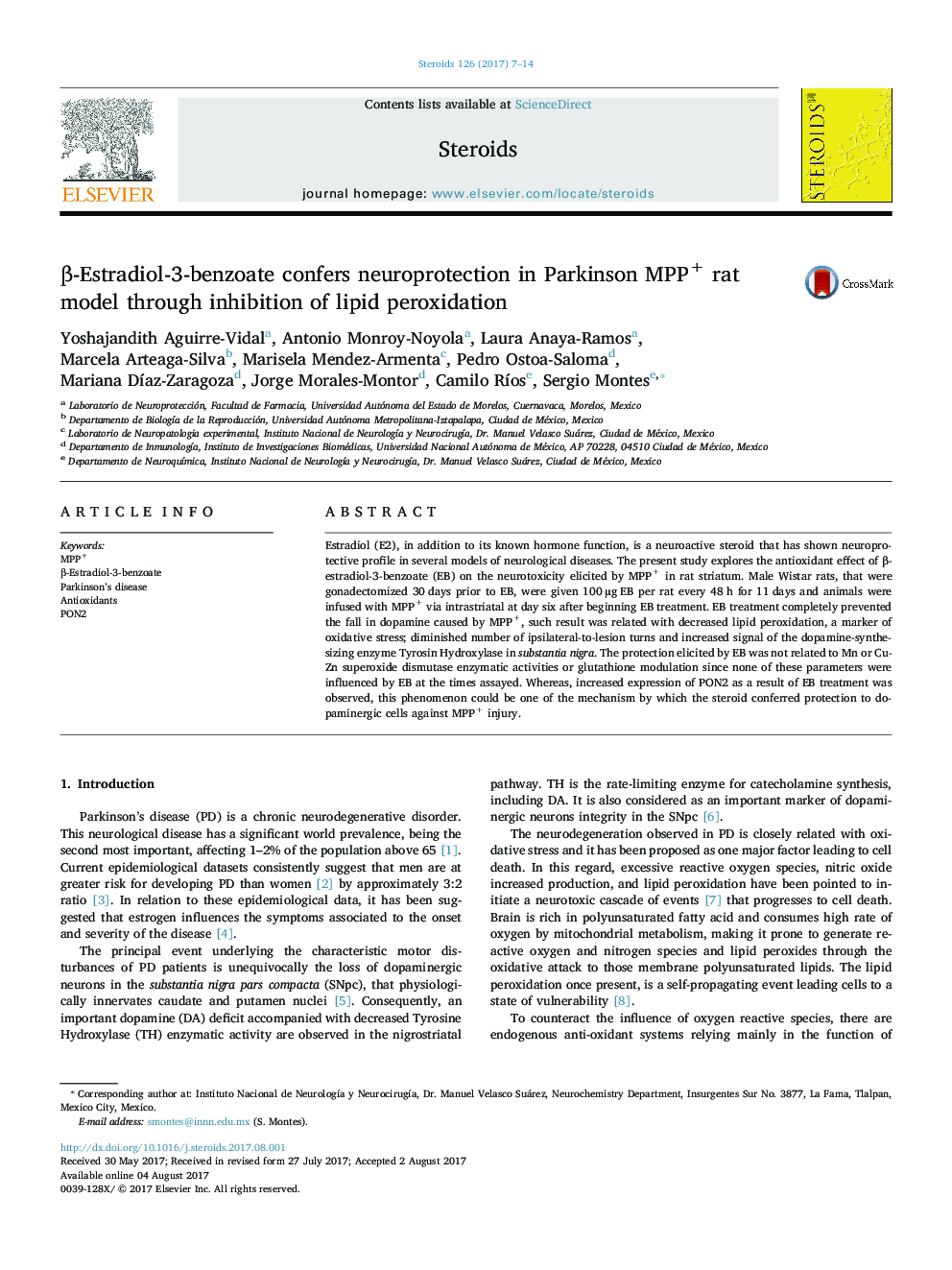| Article ID | Journal | Published Year | Pages | File Type |
|---|---|---|---|---|
| 5516599 | Steroids | 2017 | 8 Pages |
â¢Systemic estradiol spared dopaminergic cell from death induced by MPP+.â¢Estradiol treatment prevented dopamine loss induced by MPP+ in rat striatum.â¢Estradiol reduced lipid oxidation induced by MPP+, fact unrelated to SOD or GSH.â¢Estradiol increased PON2 expression in brain, possibly related to decreased lipid oxidation.
Estradiol (E2), in addition to its known hormone function, is a neuroactive steroid that has shown neuroprotective profile in several models of neurological diseases. The present study explores the antioxidant effect of β-estradiol-3-benzoate (EB) on the neurotoxicity elicited by MPP+ in rat striatum. Male Wistar rats, that were gonadectomized 30 days prior to EB, were given 100 µg EB per rat every 48 h for 11 days and animals were infused with MPP+ via intrastriatal at day six after beginning EB treatment. EB treatment completely prevented the fall in dopamine caused by MPP+, such result was related with decreased lipid peroxidation, a marker of oxidative stress; diminished number of ipsilateral-to-lesion turns and increased signal of the dopamine-synthesizing enzyme Tyrosin Hydroxylase in substantia nigra. The protection elicited by EB was not related to Mn or Cu-Zn superoxide dismutase enzymatic activities or glutathione modulation since none of these parameters were influenced by EB at the times assayed. Whereas, increased expression of PON2 as a result of EB treatment was observed, this phenomenon could be one of the mechanism by which the steroid conferred protection to dopaminergic cells against MPP+ injury.
